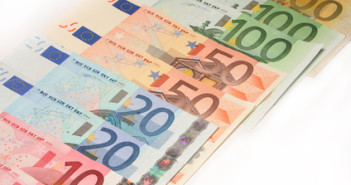The European Central Bank left rates unchanged at 0.05% but did introduce a new asset purchase plan at its most recent policy meeting today. ECB Chairman Mario Draghi announced a bond buying program of €60 billion per month to be carried out until September of 2016. The initial reaction is a lower euro although the market was largely expecting this after a rumor leaked to the masses yesterday – more on that below. European equity markets are higher on the news that the central bank has finally acknowledged that a safety net is indeed needed for an economy that has been plagued by slow growth and tight credit for far too long. Despite German opposition to this new program, Mr. Draghi and company had to make this decision as the risk of deflation is too strong. The ECB is hoping the benefits of this asset purchase program outweigh any political risk from Germany.
As this goes to print, it will be interesting to keep an eye on price action as markets have been expecting this for some time, pushing the euro lower by 17% since mid-2014. As this news is more or less expected, profit taking in euro-shorts could become a factor to close out the week.
This news follows central bank decisions yesterday, as Japanese authorities left rates unchanged and the Bank of Canada surprisingly cut rates from 1.0% to 0.75%. Additionally, the minutes from the most recent Bank of England meeting showed members have removed calls for rate hikes as inflation turns lower. The US dollar moved higher against most G-10 currencies as it would appear every major central bank save the US is trending toward lower rates and easier policy.
Overnight, markets were trading tightly ahead of today’s anticipated decision out of Brussels. Data was limited with mostly third tier inflation and industrial measures out of Denmark and Italy. As indicated earlier, the Japanese made no changes to current policy, which briefly boosted the JPY versus the dollar before experiencing a late afternoon sell-off. Canada’s dollar experienced the most violent sell-off this week following the surprise decision to slash rates by 25 bps. According to Bloomberg news, 0 of 22 economists polled were expecting any reaction. Canada, the largest exporter of oil to the US, eased policy citing the fall in oil prices as potentially showing a slowdown in global economic growth. Chairman Stephen Poloz, like his counterparts in the UK, are concerned about sliding inflation and growth outside of North America.
Going back to Europe for a moment, the fireworks started early on Wednesday as two central-bank officials leaked a rumor that the ECB would consider a proposal to spend €50 billion per month, mainly on sovereign debt, through the end of 2016. The initial reaction was a quick move lower for EUR/USD before rising over 1% within the hour. The rate settled back to levels seen before the leak as North American trading closed on Wednesday evening. Today’s news isn’t a real shocker and as this is not an open ended program, the market’s reaction will be interesting through today and Friday’s trading sessions. At present, the EURUSD rate is approaching 11-year lows as investors dump euros and buy stocks.
In the US today, weekly jobless claims came in at 307k, about 10k less than last week and having a muted reaction ahead of the ECB press conference. US data continues to outperform for the most part, as the world’s largest economy ended 2014 on the right foot and seems to be beginning the new year in similar fashion. Next Wednesday, the FOMC is under the spotlight as they conclude their first 2-day policy meeting of the new year. No change to rates is expected this time around, as Ms. Yellen indicated it would be at least a few meetings into 2015 before policy makers considered raising rates. None the less, markets will be keen to see any change in language to the central bank’s statement when it is released at 2pm on Wednesday.
Further reading:
EURUSD rate is approaching 11-year lows
new asset purchase plan



